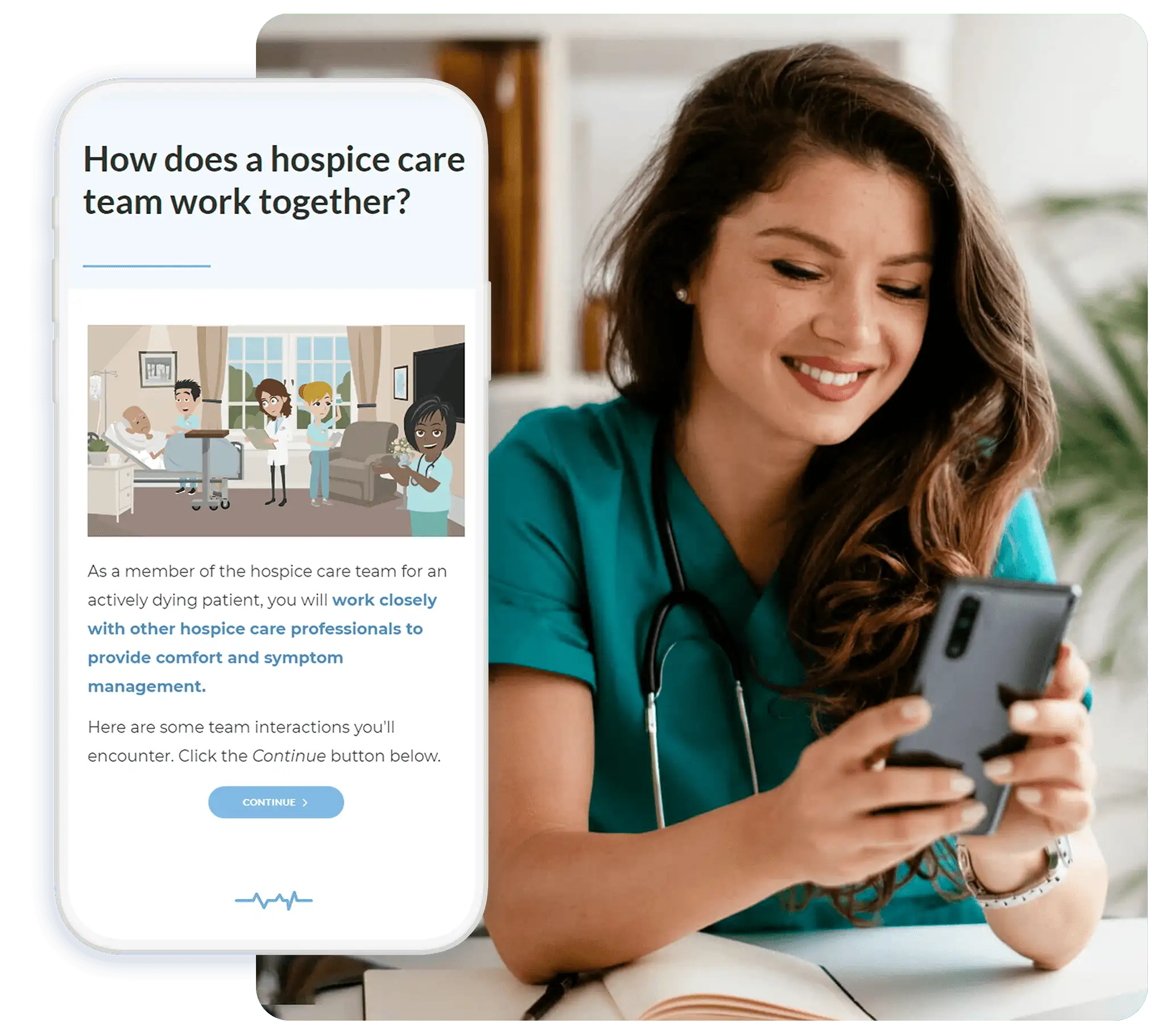The Guide to Dealing with Anxiety in Hospice
Introduction
Feeling nervous or anxious is a normal response when things seem uncertain or beyond your control. Because of the many physical and emotional changes associated with illness, feelings of anxiety occur. And although anxiety is a normal response, being nervous can be very uncomfortable and can affect the quality of your life.

CONTINUA LEARNING
Simplify Your Hospice Team’s Training and Skill Building
A complete solution for your agency: more than 125 hospice courses, caregiver in-services, training plans, and more.
Symptoms
- Feeling restless and unable to relax.
- “Butterflies” in your stomach or feeling as though there’s a lump in your throat, pressure in your cheek.
- Trouble falling asleep or staying asleep.
- Worrying about what could or may happen.
- Getting upset or irritated about things that normally might not bother you.
- Trouble concentrating and remembering.
- Feeling overwhelmed.
- Nausea and/or stomach upset.
- Eating more or less.
- Headaches, muscle aches and tension.
Causes
- Fear of the unknown, not knowing what’s going to happen.
- Fear that symptoms such as pain, shortness of breath, weakness will be overwhelming.
- Fear about not being able to take care of yourself.
- Fear that you will not be able to take care of others.
- Concerns about moving to a nursing home or assisted living residence.
- Concerns about finances, medications.
- Concerns about receiving or giving care.
- Unexpected news.
- Making important decisions about the future.
Remedies
- Please talk about your concerns, feelings and fears with someone you trust, and who will listen and provide support. Confide in your family, friends, clergy or hospice care team. Your hospice psychosocial professional is trained to help you through these difficult times.
- Take slow deep breaths, learn relaxation techniques.
- Enjoy a relaxing activity, take a bath, a walk, watch a movie.
- Find a place where you can relax, uninterrupted if possible.
Signs – Seek Help
The signs that follow are an indication that you should call your hospice care team right away:
- Sweating or cold, clammy hands, heart palpitations and/or rapid heart rate and breathing.
- Panic or extreme nervous distress, feeling overwhelmed and that something needs to be done urgently.
- Increase in pain.
- Inability to rest or sleep.
Extreme anxiety is physically uncomfortable and can be emotionally debilitating. Your care team will guide you in finding ways to help you feel better. Your hospice team has trained professionals who can listen, answer questions, and help you. You are not alone.
If you found this article informative and useful share it with your friends and colleagues.
